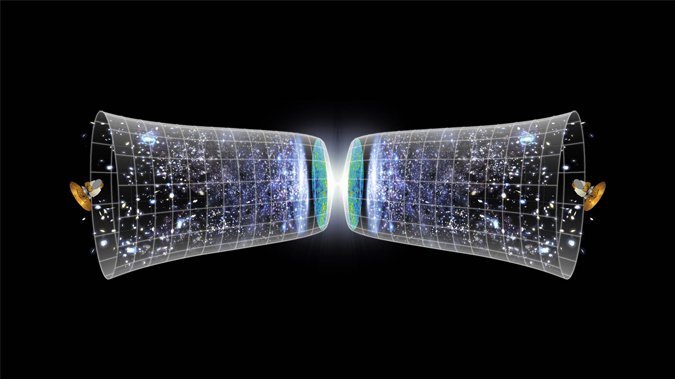-
Posts
12534 -
Joined
-
Last visited
-
Days Won
32
Content Type
Profiles
Forums
Events
Posts posted by Moontanman
-
-
That link is from the FDA ( US Food & Drug Administration ), who`s main concern is to worry about which foods or drugs are safe for the consumers, specially US citizens, and which types of food aren`t. There is a lot of myths concerning diferent types of food, being the "milk" one of the most important ones, due to its valuable importance in our nutrition.
The FDA does such a wonderful job... not... Yes lots of myths do surround food and one of them is the "extreme" danger of raw milk.
The word Pasteurization, comes from Louis Pasteur`s last name, who discovered the importance of applying heat to destroy numerous bacterias in foods. This is off-topic, so I will not say any more about him, but he gave his name to this process, and before its existence, back in the 19 th century, the rates of mortality and morbility of milk origin pathogenic bacterial diseases in the USA and as the rest of the world was huge (same figure as in 1998, 800, but multiplied by thousands or maybe more), being more evident after one or two days of it being gathered.Do you have anything to back up this assertion?
If your herds are healthy, you may not suffer problems from milk consumption if it is collected following strict rules of hygiene and a strict chain of refrigeration till the consumer, but if not, milk is probably the best place where bacterias can multiply and a potential "bomb" for the outbreak of diseases. The same goes for the ellaboration of milk based products.
So you don't eat butter or cheese or yogurt? Of course you have to take reasonable care and make sure your cows are healthy and such but the danger is exaggerated IMHO
0 -
I agree, I am an atheist, women are just as capable as men and should have equal treatment.
0 -
Probably true, but the link provided makes it look like raw milk is practically poison.
0 -
The basic premise of creation is the Earth is more or less 6,000 years old, far to much evidence that is not true. All the other assertions of creationism stand on that one premise, so many of the ideas behind creation are obviously untrue. No extinctions, all life is descended from a few animals saved on Noah's Ark, no evidence i am aware support creation at all, the evidence supporting the evolution of life not to mention the ancient age of the Earth is over whelming.
0 -
I grew up in rural WV, I drank raw milk, from the time of infancy. We strained the flies out if with cheese cloth. We made butter and butter milk. I knew quite literally hundreds of other people who drank and still drink raw milk. No illnesses, not one, ever.
Raw milk is highly unlikely to make you sick, can it? yes it can, so can well water and breathing.
Pasteurization allows huge farms to market milk in huge quantities, the milk lasts longer on the shelf than raw milk, it all tastes pretty much the same, no where near as good as raw milk, and protects people from less than scrupulous people who would sell you anything for a dime.
Raw milk is not a big health problem.
Merged post follows:
Consecutive posts mergedThere would be quite a bit of cream in there, but still not that much. Do you consider cheese to be greasy?
Yes, cheese is greasy, some more so than others but all of it is greasy to some extent, I love cheese blue cheese is great, swiss, Limburger, I love cheese but it all has at least a slightly greasy consistency.
0 -
Any chance you have anything to back up this assertion? Hard to believe the Rod of God ministries in the local run down strip mall has a special stone from anywhere in it.
0 -
Speed limits, 70mph on local interstates and that whole speed of light thing, very annoying.
0 -
Which "natural Laws"? The ones we know, or the ones we don't know about yet?
As I said, all of them no matter what they may be.
0 -
Many many years ago I saw what is called a monster truck float on water because it's giant tires actually allowed it to float, quite high in the water too, but it was very difficult to steer and brake or accelerate. It's tire treads were quite able to make it go.
0 -
I only know
9, Love grows where my Rosemary goes, Edison Lighthouse (or Nothing grows where my Rosemary goes, novelty remake, lol)
12, Betty Davis Eyes, Kim Carnes
14, Material Girl, Madonna
19, Cecilia by Simon & Garfunkel
and
20, Sweet Pea by Tommy Roe
"off hand as you say"
One for you Swansont, old last century band too (still making music though), "Who cast his spell of love and got a woman from a child?" Literally my favorite song and band of all time!
0 -
What happens if the cream is kept warm but not churned?
It just turns to clotted cream, eventually it becomes inedible.
(not true really, the end result of these processes can be things like clabbered milk, yogurt, cottage cheese to real cheese) sorry.
BTW, none of this works for pasteurized milk, it only goes bad and becomes inedible.
0 -
My thoughts were that butter would be produced because all the organic compounds other than the saturated fatty acids would decompose.
Anyways, would the end product be greasy?
Making butter is not exactly a sterile process and unless you churn it you only get spoiled cream. Butter is fat, it is inherently greasy.
0 -
BTW Green, believe it or not being exposed to natural occurring bacteria , even bad ones is good for you. Bolsters the immune system, why the emphasis on certain bacteria?
0 -
To make butter you have to churn the warm cream that is allowed to rise to the top of whole raw milk. The butter floats to the top and you are left with buttermilk. Making butter the old fashioned way with a churn and by hand is quite labor intensive but the result is very good.
We would allow about five gallons of rich raw cows milk, generally it was mostly cream, (almost any raw milk will work, even human) once it had warmed and turned to what would be called slightly spoiled milk, (called blinking the milk) we would churn it and in a few hours of churning you get butter.
You can try it at home by putting a small a mount of warm cream in a jar and shake it until the milk fats separates from the milk. Here is a site that explains it, we used a stone churn with a large wooden plunger (no electricity, so it was hard work)
0 -
How do you know you are not beautiful?
0 -
I've tried to debate some of them, like trying to nail jello to a tree
0 -
No magnets do not effect light, photons are chargeless.
0 -
but you can. Maybe spiraling light is a venture worth looking into.
First, a laser is not light from a cannon.
http://en.wikipedia.org/wiki/Laser
Do you have any idea how to spiral light? And how would this keep it from spreading out in transmission?
0 -
I take them serious in a negative way.
0 -
http://en.wikipedia.org/wiki/Ion_thruster
Ion thrusters use beams of ions (electrically charged atoms or molecules) to create thrust in accordance with Newton's third law. The method of accelerating the ions varies, but all designs take advantage of the charge/mass ratio of the ions. This ratio means that relatively small potential differences can create very high exhaust velocities. This reduces the amount of reaction mass or fuel required, but increases the amount of specific power required compared to chemical rockets. Ion thrusters are therefore able to achieve extremely high specific impulses. The drawback of the low thrust is low spacecraft acceleration because the mass of current electric power units is directly correlated with the amount of power given. This low thrust makes ion thrusters unsuited for launching spacecraft into orbit, but they are ideal for in-space propulsion applications.0 -
I'd have to say no, even a laser spreads out tremendously over long distances.
0 -
To me supernatural means being able to operate outside of or in spite of the natural laws of the universe no matter what they may be. A supernatural being can do anything, no conservation of energy laws, no speed limits no problem changing the past or the future, all knowing and all seeing, no limits what so ever!.
0 -
I think the human body puts out about 100 watts in heat energy YodaP.
0 -
http://en.wikipedia.org/wiki/Solar_wind
Mars is larger than Mercury and four times farther from the sun, and yet even here it is thought that the solar wind has stripped away up to a third of its original atmosphere, leaving a layer 1/100th as dense as the Earth's. It is believed the mechanism for this atmospheric stripping is gas being caught in bubbles of magnetic field, which are ripped off by solar winds.[32]http://www.astronomynow.com/news/n1003/15mars/
Mars is constantly losing small amounts of its atmosphere into space, but a new study shows that the loss rate may be enhanced by pulses of solar wind energy.The researchers analysed solar wind data from the Advanced Composition Explorer (ACE) and Mars Express observations that track the flux of heavy ions leaving Mars' atmosphere, and found that bursts of atmospheric loss correlate with solar events known as corotating interaction regions (CIRs).
0



30% of Nuclear Arsenals, for what?
in Astronomy and Cosmology
Posted
I'm betting the crazies would go berserk at the thought of nukes in space.